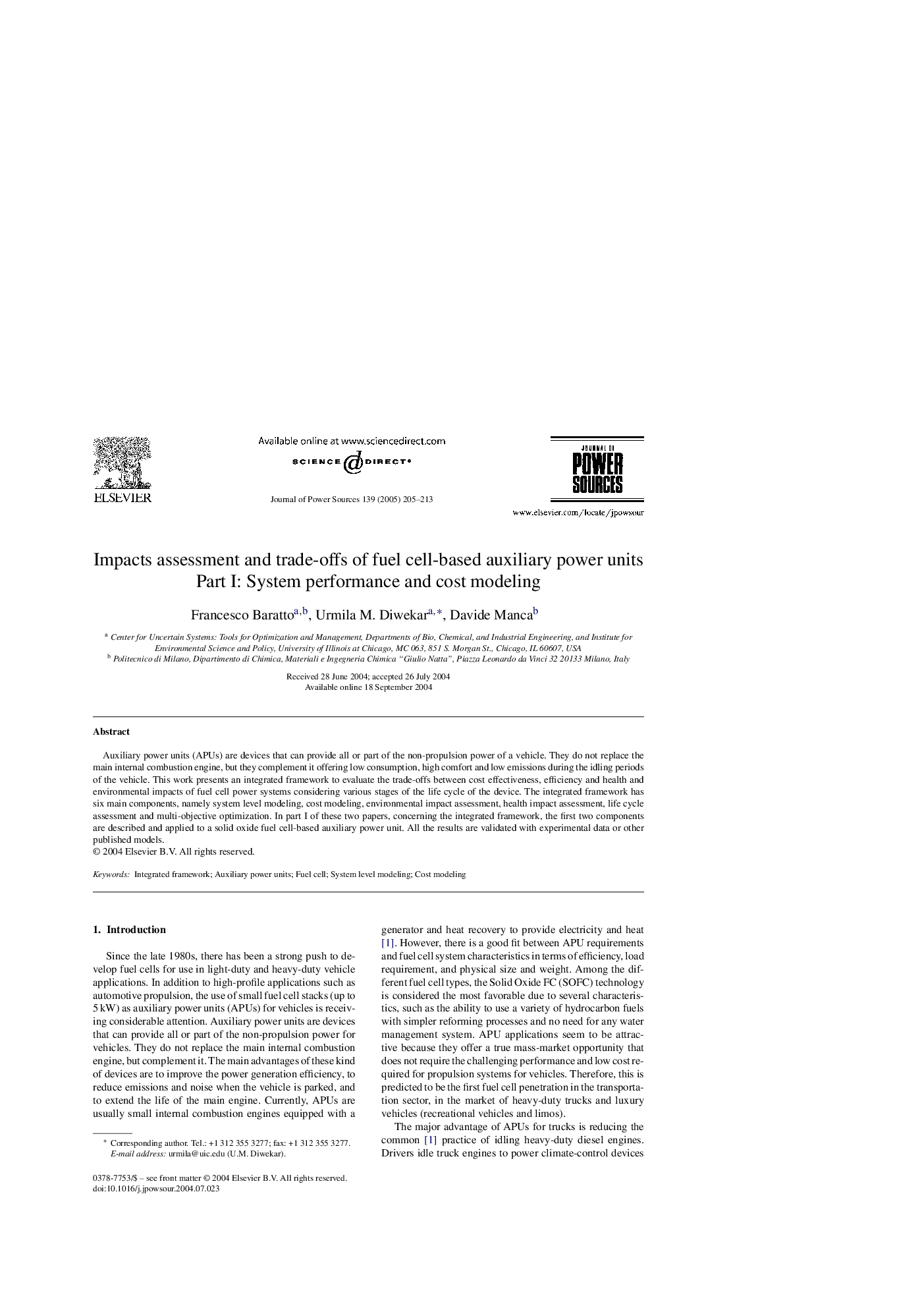| Article ID | Journal | Published Year | Pages | File Type |
|---|---|---|---|---|
| 9760516 | Journal of Power Sources | 2005 | 9 Pages |
Abstract
Auxiliary power units (APUs) are devices that can provide all or part of the non-propulsion power of a vehicle. They do not replace the main internal combustion engine, but they complement it offering low consumption, high comfort and low emissions during the idling periods of the vehicle. This work presents an integrated framework to evaluate the trade-offs between cost effectiveness, efficiency and health and environmental impacts of fuel cell power systems considering various stages of the life cycle of the device. The integrated framework has six main components, namely system level modeling, cost modeling, environmental impact assessment, health impact assessment, life cycle assessment and multi-objective optimization. In part I of these two papers, concerning the integrated framework, the first two components are described and applied to a solid oxide fuel cell-based auxiliary power unit. All the results are validated with experimental data or other published models.
Related Topics
Physical Sciences and Engineering
Chemistry
Electrochemistry
Authors
Francesco Baratto, Urmila M. Diwekar, Davide Manca,
